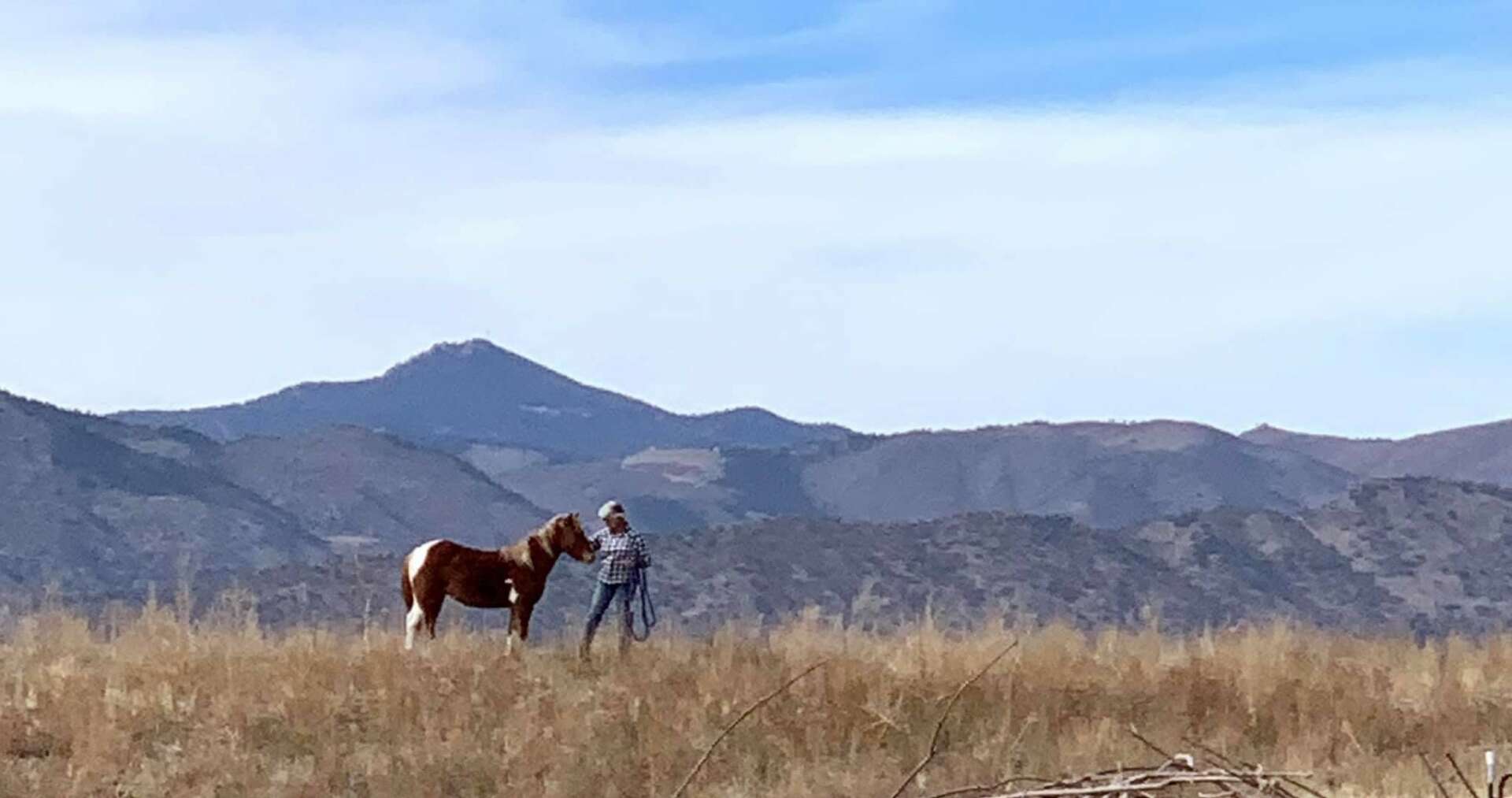Alright – so today we’ve got the honor of introducing you to Bernadette Spillane. We think you’ll enjoy our conversation, we’ve shared it below.
Bernadette , thanks for joining us, excited to have you contributing your stories and insights. We’d love to hear about how you went about setting up your own practice and if you have any advice for professionals who might be considering starting their own?
We bought our property in 2006 hoping to create a safe haven and opportunity for us to have our horse in our own backyard. We have 53 acres and you can’t have just one horse so, we found ourselves with 6 horses, two pasture buddies and 4 rideable horses. Little did we know that that would be the beginning of a life long journey into health, wellness and happiness for animals and people. Veterinarians, horse trainers and bodyworkers started asking us if we would be able to take on a few more horses, we had the space. These horses had behavior issues or physical issues that kept them from being rideable or even safe to be around, but otherwise lovely beings needing a home and new environment. What we discovered was that we can’t help the animals heal unless we heal ourselves, its a circle. We started seeking out bodyworkers, horse trainers, veterinarians and mental/emotional health experts to help us. The result was us becoming a 501c3 non profit in 2011, the few horses became 40 and our goal of meeting their emotional, physical needs and the community was born. We now host year round courses in life coaching, equine assisted psychotherapy and vocational training in massage, acupressure, and Masterson Method, to name a few. We host horsemanship clinics which helps riders to understand and connect with their horses in a new way which eliminates the sometimes dangerous behavioral issues that send horses to the kill pens or euthanasia. We provide a safe place for children and young adults on the autism spectrum and those with mental difficulties to be outside and experience horses and other farm animals. We reach out to the community with farm days and tours and they have responded with an amazing volunteer force who helps us care for all of the animals. We were led on this path by our desire to help our few personal horses not realizing that the need for understanding and a better way to be with animals was so great. We evolved into doing what we’re doing, there was no grand plan, and yet it has become what we all needed most, a place of safety and community, where all of our emotional, physical and spiritual needs are being met so that we can all thrive, together.
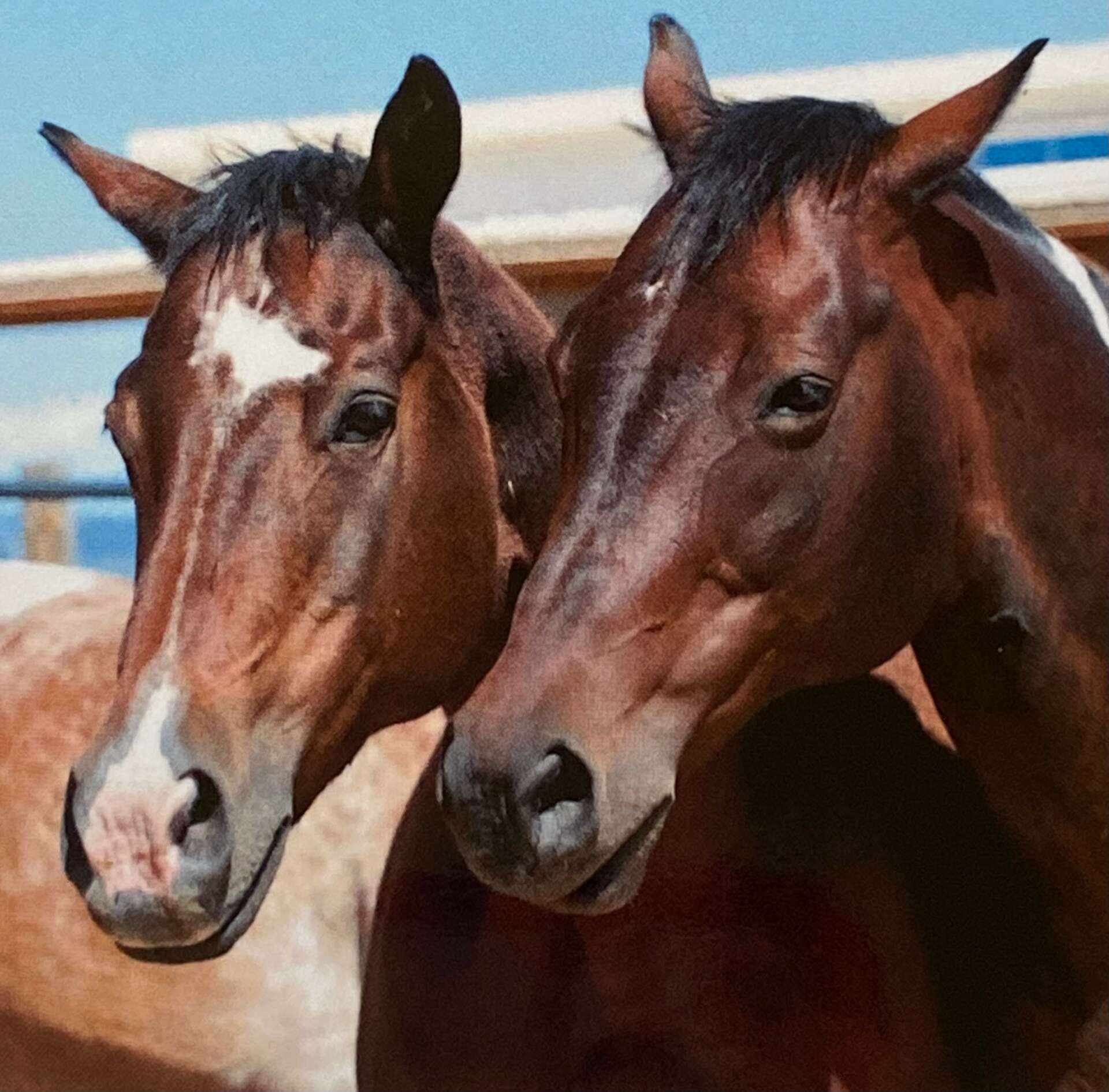
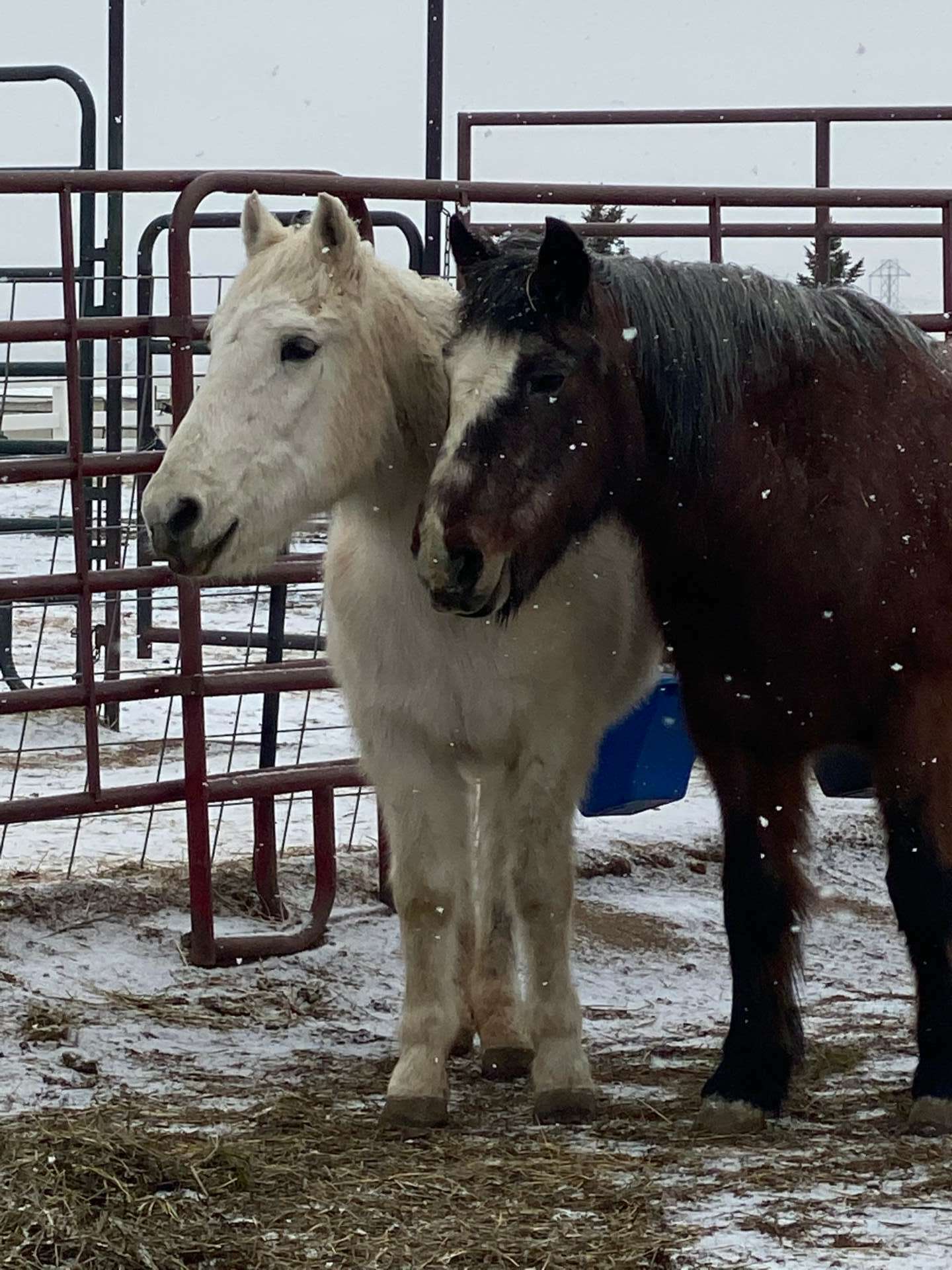
Bernadette , love having you share your insights with us. Before we ask you more questions, maybe you can take a moment to introduce yourself to our readers who might have missed our earlier conversations?
Happy Dog Ranch Foundation is a horse rescue/sanctuary that works on rehabilitating and providing a home for horses in need as well as other farm animals. We do not adopt horses out, we strive to create as natural and stress free an environment for horses as possible. They are kept in herds, where there is free choice hay, we turn them out on a large pasture every day to graze and play and they are seen every day by our staff and volunteers. As herd animals horses need other horses to stay balanced mentally and physically. They form bonds with other horses in the herd and groom, protect and offer companionship to each other. Very little of a horse’s day is actually spent with humans even in the best of circumstances and the support the herd and free movement offers to them is invaluable. We realized early on that our approach was very different from many other rescues. We believe that each horse has intrinsic value whether they can be ridden or not. That the stability of their life, not having herd members come and go, is extremely important. We try as much as possible to allow the horses to have a “say” in their interactions. When working in psychotherapy with therapists and their clients, the horse may choose the client rather than having the therapist choose the horse. The horses interaction is treated as a co-teacher not as a tool. We care for all of their needs, hay, supplements, turn out, clean pens, veterinary care, dental and farrier care and in return they step up and help us with our emotional needs. Gestalt Equine Institute of the Rockies and Denver University’s Equine Assisted Mental Health certification program are two of the groups who use our horses to train therapists how to utilize horses in therapy and healing. These are not riding programs, instead a therapy that uses the horses incredible empathy and sensitivity to make break throughs in their clients healing. Our horses are seen and handled on a daily basis, they are a balanced and friendly herd which makes them ideal for this type of non riding work. Rescued horses helping rescue people.
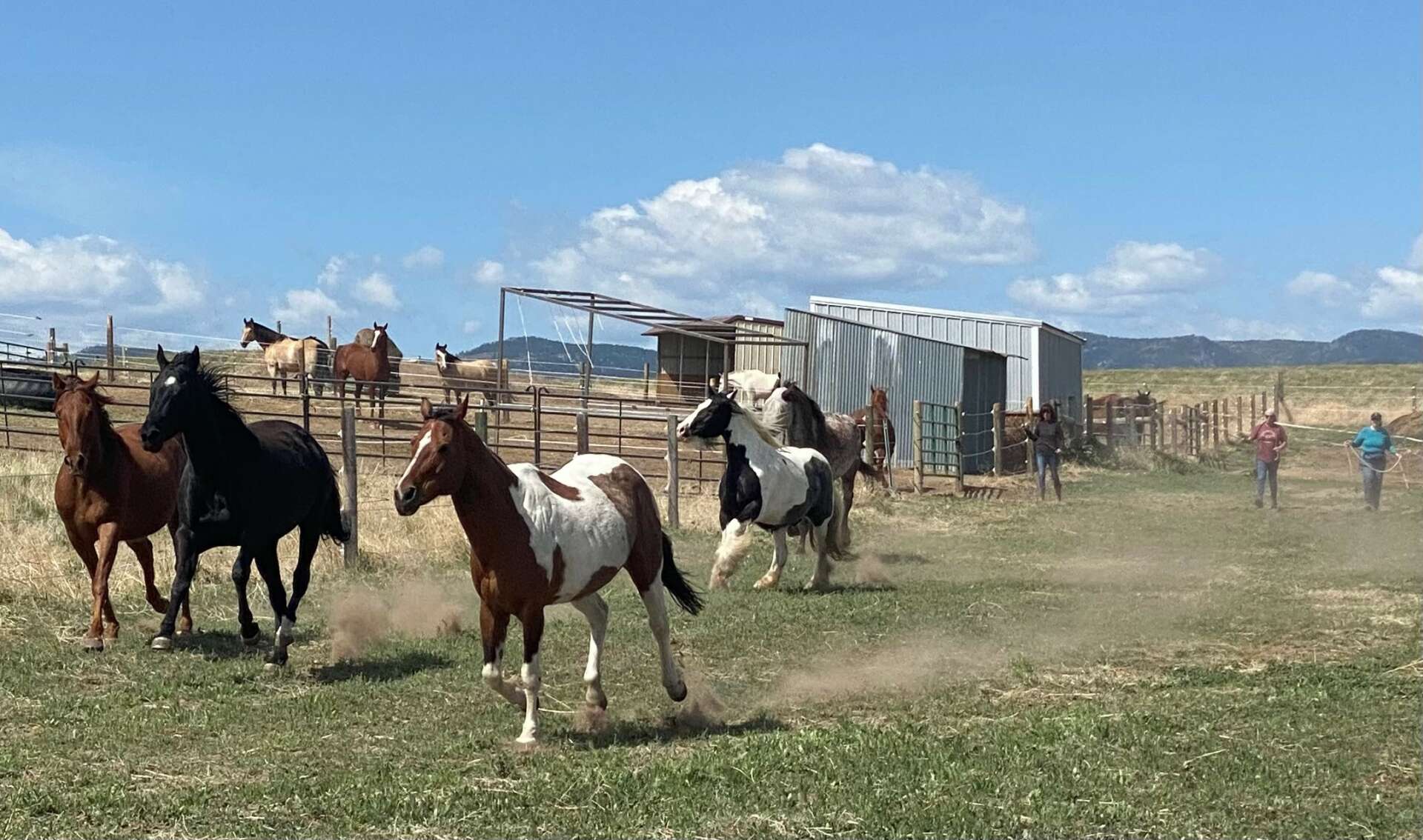
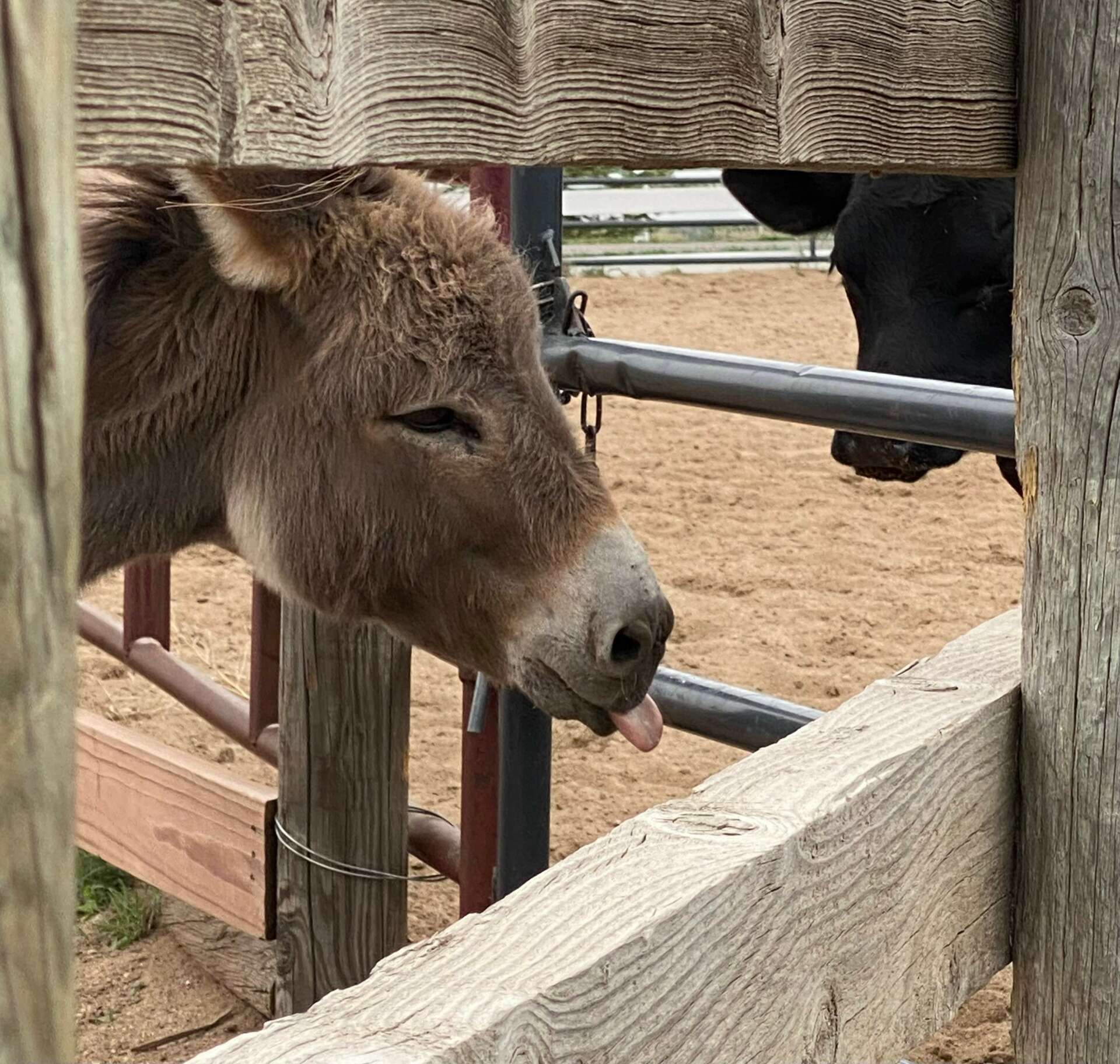
What’s a lesson you had to unlearn and what’s the backstory?
One of the first big lessons I learned in this journey was to disregard some of the “experts”. Listening to and my heart and letting it guide me as been a major factor in guiding the direction and course that we are now on. Working with horses; living, breathing, intelligent, emotional beings is a unique and wonderful experience. We were told initially how we had to be strong leaders, that the horses needed to respect us and that everything in their world was black and white and we had to be precise and clear, no changing your mind or backing down, don’t let the horse win…..the list goes on and on. What we found out and and as it turns out there are other kinder, gentler ways that bring out the best in the horse and the individual. As we closed doors on philosophies and techniques that seemed detached from the true well being of the horse we found other, kinder and gentler means that allowed us to work as partners, not servants and masters. When we started following our heart and stopped listening to other louder voices telling us what and how to do things we found out that the herd was quieter, there were less injuries and illness, the horses were friendlier and the entire ranch was a happier place. We started attracting the people and programs that walked the walk in terms of presenting this information and new way of being to the world. We have tripled our volunteer base with volunteers who love being here and stay; we have return guests coming back every year for clinics and workshops; we have some of the finest teachers and trainers in the world coming here to do hands on workshops and clinics. The stability, camaraderie and community that comes from that is magical and we all feel it. We do not do expensive or extensive marketing, all of our donations and money earned goes right into the care and upkeep of the animals. We have grown and our reputation has grown through word of mouth and referrals. We offer a safe, consistent, compassionate and friendly environment for horses and people to thrive.
Do you have any insights you can share related to maintaining high team morale?
We have been blessed with wonderful people and high retention in our staff. Early on though we were misled by putting too much emphasis on a person’s resume. What on paper was a perfect person for the position we were looking to fill was in fact the worst person to work with. We draw from our volunteer staff or referrals from people we know well in the field. We now do a trial run to make sure that the person has the physical and mental stamina to handle a physical, repetitive job with care and attention to detail. During that time we teach then mentor the new applicant to see how they handle the details and demands of working with horses/animals, volunteers, workshop participants and guests. Are they quick to anger, find fault, easily flustered, unable to think on their feet or use their common sense, follow safety protocols, be considerate of equipment and supplies, complete tasks in a timely manner…..what is on the surface a simple job actually encompasses a myriad of skills all while being physically demanding at times and in all weather conditions. We have found that helping each employee or volunteer to become strong in their roles means that we are confident that they can handle and think for themselves. We fell into the pit of micromanaging and quickly found that we were disempowering our staff and creating more work and anxiety for ourselves. We try to have a team available at all times so that no one is ever completely on their own and can always feel confident that they can ask for and get help. We hold quarterly staff meetings to promote problem solving and collaborative thinking, offer job sharing and ample vacation time. We respect staff’s days off and try to make it a fun and satisfying work environment with plenty of opportunities for personal and educational growth as well as financial support in taking classes to learn new skills. To have a happy animal rescue staffed by unhappy people would tear apart the fabric of what we do here and destroy our mission, we need to all feel that we are seen, heard and appreciated. We’re all in this together and everyone is important.
Contact Info:
- Website: www.happydogranch.org
Image Credits
Dorothy Kaiser Judith Dreiling Bernadette Spillane


